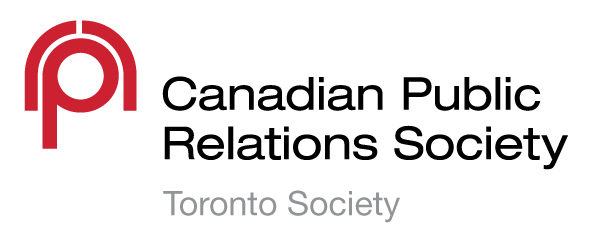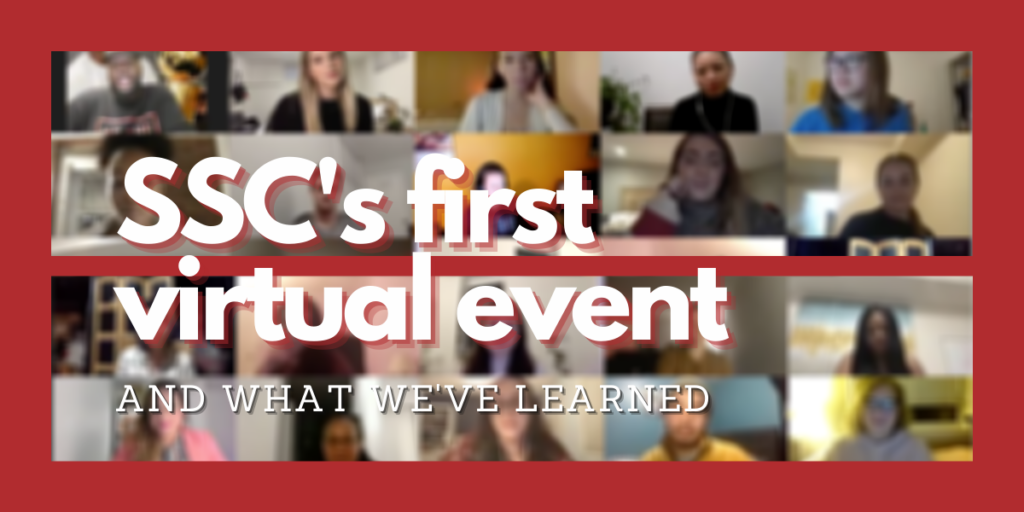Written by: Angela Frangos, University of Guelph-Humber Public Relations student and CPRS Student Steering Committee Representative
On Oct. 27, CPRS Toronto’s Student Steering Committee (SSC) hosted its first virtual networking event, a Virtual Coffee Chat. With speakers Jenny Shin, Mark Strong and Michelle Dias, 38 attendees learned about their careers and how COVID-19 has impacted them in small breakout rooms.
Pre-event
For many members of the SSC, this was our first experience attending and running a virtual event. We knew that for students to benefit from this event, groups needed to be small. Rather than limit the number of potential attendees, we opted for breakout rooms. We began with all attendees in the main Zoom room, broke them up into three breakout rooms and rotated the speakers through the three rooms at 30-minute intervals.
With the truncated time-frame that this event was planned in, promoting to students was essential. Our social media team began by planning posts on our Twitter and Instagram accounts, which were shared with accounts specific to schools with PR programs. We also planned a giveaway, incentivizing attending this first event, with the winner receiving free tickets to our highly anticipated Passport to PR event in November. SSC student representatives also emailed program coordinators, who contacted PR students at various GTA schools. This direct outreach with various contacts not only fostered relationships but increased the reach of our event.
When running a virtual event, a thorough knowledge of the technology being used is key. Aside from researching the registration and event platforms, we completed run-throughs of the event in advance. We ran through the event with and without the speakers in attendance to determine how to set up the breakout rooms, whether to move attendees or the speakers through the rooms and facilitating that transition. Having a leader, in our case, SSC President Arefeh Ghane, facilitate the event from a technical standpoint was beneficial and avoided confusion.
Post-event
Perhaps the most challenging part of any event is keeping the audience engaged. With virtual events, this engagement is even more difficult to achieve, particularly for students who are suffering from Zoom fatigue from their long, daily lectures. Our exit poll results show that attendees enjoyed small breakout rooms because it allowed them to interact with speakers and other students, which is much different than the format of their usual lectures. We desperately lack these interactions during this time of physical distancing, so finding ways to make an event feel as “physical” as possible will engage attendees best.
Key takeaways
This event provided a vital learning experience for all SSC members as we venture into a drastically different world of event planning. Here are some key takeaways from this experience:
- Plan your event as early as possible. Just as with any in-person event, the earlier the event is planned, the more time promotions have to reach their intended audience.
- Find a way to make the event interactive. Whether that’s by utilizing the chatbox, sending polls during the event, or having everyone introduce themselves, make sure to keep attendees engaged throughout.
- Keep groups as small as possible. Particularly for a networking event where you want discussions to happen, the smaller the group of attendees, the easier that is to facilitate. Even with our small breakout rooms, our exit survey’s main critique was that there was not enough time to network, so if that is the main purpose of your event, breakouts of 10 and under would be best.
- Practice, practice, practice. Do not wait until during the event to see if you are familiar with the technology you will be using. Complete at least one event run-through, making sure to practice everything that you will be using. Are your speakers using a Powerpoint presentation? Will each speaker be sharing their screen, or will a member of your team be sharing on their behalf? Will you be recording the event, and how will you be saving that recording? Make sure every aspect of your event is well-practiced. It may not eliminate every bump in the road, but it will leave you better prepared to handle any hiccups that do arise.
- Learn from mistakes to improve the next event. As we plan Passport to PR, we are thinking about switching to a different platform that better suits the larger volume of attendees and facilitates communication. Without this first event, we may not have known that another platform could be a better option.
Passport to PR will be taking place virtually from Nov. 25-27. This virtual networking event will give students the opportunity to learn about different PR agencies and departments from the companies themselves. Registration is not live yet, but students can go here to see the latest CPRS updates.

